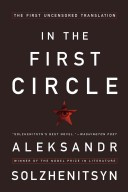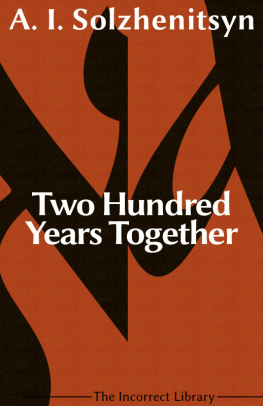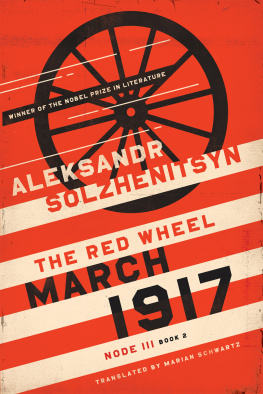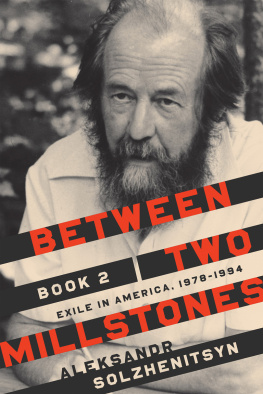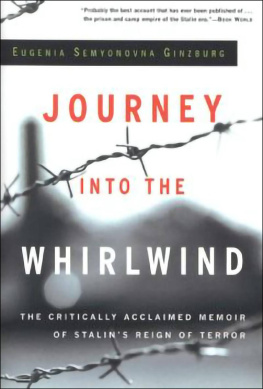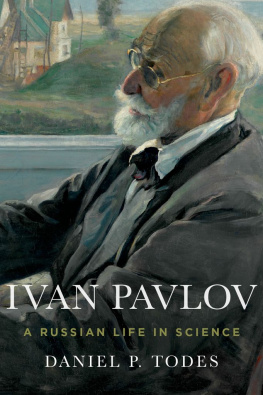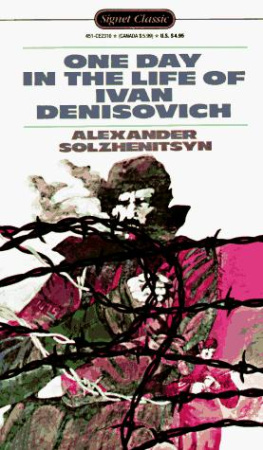
The author and publisher have provided this e-book to you for your personal use only. You may not make this e-book publicly available in any way. Copyright infringement is against the law. If you believe the copy of this e-book you are reading infringes on the authors copyright, please notify the publisher at: us.macmillanusa.com/piracy.
Contents
INTRODUCTION
BY KATHERINE SHONK
WHEN I LIVED in Russia during the mid-1990s, I worked in the Moscow office of an American company, housed in a yellow stucco building that, before the revolution, had been a military academy. My desk was in the second-floor ballroom, next to a grand piano that no one ever played. That winter, balloon curtains covering the two-story windows at each end of the ballroom billowed steadily from a frigid draft. Men in blue jumpsuits appeared every few days to beat the radiators with pipes, but never produced more than a few puffs of steam; the Russian secretaries wore their furs all day long, and I typed with my gloves on. At home and on the train, I read Russian novels in translation, impatient to feel a bit less like the alien that I was. Squinting in the red-carpeted ballroom during work hours, I pretended that the lovely young women striding to the laser printer were guests at one of Anna Pavlovnas soires, while the swaggering accountants transformed into Nikolai Rostov and his gambling buddies. Rolling off the overnight train in St. Petersburg early on a Sunday morning, I found myself in a city, at that time of day and decade, still sleepy and unadorned. But its bustle and celebrated seediness rose up as I retraced, more or less, the 730 steps from Raskolnikovs house to the pawnbrokers, then followed Gogols nose down Nevsky Prospekt. Tolstoy, Dostoevsky, and the rest romanticized Russia for me, as they do for all their readers, and populated my new landscape with characters that, if the number of walking tours and house museums was any indication, still lived and breathed in the Russian imagination.
Yet, universal insights into human nature aside, the great writers of the nineteenth century offered few clues about the lives of those I passed on the streets and those I was getting to know ever so slightly. More striking and perplexing than my young, ambitious coworkerswho, I couldnt help but notice, were adapting to corporate America faster than I waswere their grandparents. War veterans sat ramrod straight on the subway, red-and-gold medals shining on their worn suitcoats. Babushki sold crabsticks and cigarettes in long receiving lines outside the Metro even in the midst of blizzards. Old men, knuckles and forearms blurred with prison tattoos, hunched over stand-up tables outside liquor kiosks on Friday afternoons. Women past retirement age sat guard over the nations jewels, its museums and theaters. (I once saw a group of them boot an American college student out of the Bolshoi for showing up in shorts.) In Moscow, overgrown with casinos, billboards, fast-food joints, and mini-marts, the survivors of communism had been pushed to the margins, yet remained stubbornly onstage. The tension between young and old was palpable. Once a young Russian woman mentioned to me that she did not want to grow old, that she hoped to be dead by age fifty-five. Others, like immigrants looking over their shoulders from the safe distance of the New World, would sigh and say that little could be done for those too old to adapt to capitalism. And the new regime, which had promised to lift up the tired and the sick at the end of their lives, was proving to be almost as apathetic and ineffectual as the old one.
Only when I read One Day in the Life of Ivan Denisovich did I begin to understand what the oldest generation of Russians had lived through and how those ordeals now help them stay afloat. The first work of literature to speak openly and honestly about the Gulag, the novel was published in 1962 in the literary journal Novy Mir, launching not only Aleksandr Solzhenitsyns brave and distinguished career, but also a brief Thaw. More than forty years after Khrushchev handpicked the novel to expose Stalins cult of personality, Solzhenitsyns story of one peasants day in a labor camp enlightens us about lives cornered again and again by history.
Can a man whos warm understand one whos freezing? the narrator of One Day in the Life of Ivan Denisovich asks. The steady accumulation of sensory detail gives this work of fiction the air of incontrovertible truth. We do feel as if we experience Ivan Denisovich Shukhovs cold, hunger, fear, and exhaustion, as well as the flashes of comfort he snatches in the presentThe smoke seemed to reach every part of his hungry body, he felt it in his feet as well as in his heador remembers with disbelief: great hefty lumps of meat. Milk they used to lap up till their bellies were bursting. The language of the novela blend of peasant slang, prison jargon, and reportage, captured vividly here in H. T. Willettss blunt, clean translationalways serves the senses, and emotion is a luxury only the reader can afford. Just as Tyurin, the benevolent foreman of Gang 104, tells the story of his war years and arrest without self-pity, as if talking about somebody else, Solzhenitsyn describes this better-than-average day in the camps without a trace of sentiment. Some bizarre details are related so matter-of-factly we feel they must be true, such as the story of how, for a time, the guards locked up the zeks dinner rations after doling them out in the morning. Ivan Denisovich, or the narrator (their voices braid seamlessly throughout the book), explains: You took a bite and looked hard at your bread before you put it in the chest. And though episodic and fragmented, this day in the life is nonetheless fraught with tension and suspense. With the novels central antagonist offstage, crafting his cult of personality, a host of stand-insguards, zeks, hunger, fatigue, and timethrow obstacles in Ivan Denisovichs path. Meanwhile, our hero keeps one eye trained skyward, taking note of the suns dull blurry light or a red and sulky-looking moon. These flares of lyricism are purely practical; only when Shukhov is in bed will he be able to say for certain that this was an unclouded day.
The bosses did all his thinking for him, and that somehow made life easier, the narrator tells us, but we see for ourselves how resourceful Ivan Denisovich is. As he navigates the camp, planning each step in advance, Shukhov also thinks ahead to his scheduled release in two years, though he knows better than to take it for granted. The two letters he receives annually from home offer frustratingly brief glimpses of the life that was taken from him, and of his possible future. When his wife writes to him about the lively new trade of dyeing carpets, Ivan Denisovich gamely quizzes her about it in his next letter: was it possible that someone bad at drawing could become a master dyer, raking in rubles by stenciling old sheets? The fad seems unlikely to outlast Ivan Denisovichs prison term, which makes his determination to make a go of it all the more poignant.
Plotting, scavenging, dissenting, and praying, Ivan Denisovich and the other members of Gang 104 (Fetyukov, Buynovsky, Alyoshka) test out different survival strategies. Uniforms and barbed wire may distort the zeks personalities, but they cannot blot them out completely: Outwardly, the gang all looked the same, all wearing identical black jackets with identical number patches, but underneath there were big differences. Youd never get Buynovsky to sit watching a bowl, and there were jobs that Ivan Denisovich left to those beneath him. At supper, Ivan Denisovich takes a moment to indulge in a character study of an old man who has been imprisoned as long as the Soviet state had existed (at that point, about thirty-four years). Ivan Denisovich notes the mans excellent posture, the way he lifts his spoon to his lips rather than dipping his head in the bowl like the rest, the fact that he sets his bread ration on a clean rag rather than on the dirty table. Shukhov carefully monitors the state of his own dignity as well. Early in the day, he refuses to lower himself like Fetyukov by begging openly for a cigarette butt. (But dignity can have its advantages: Tsezar gives the butt to Ivan Denisovich precisely because he does not beg.)
Next page


